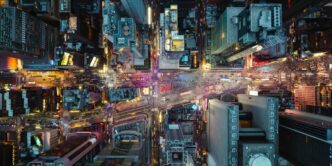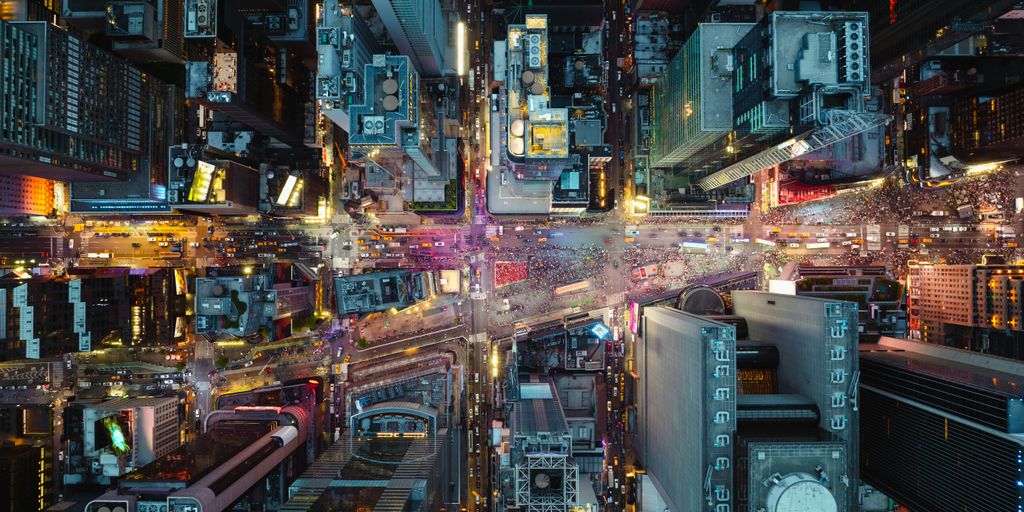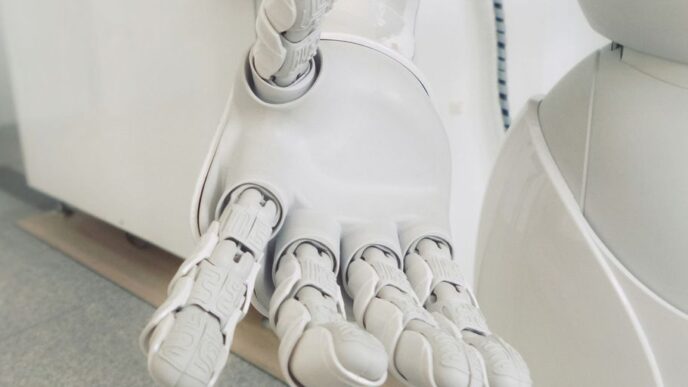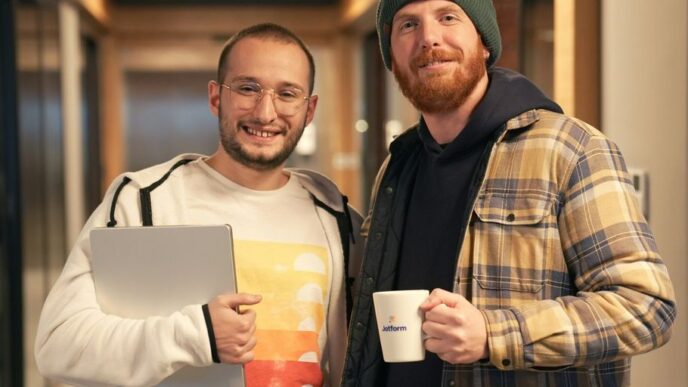So, what’s going to happen in the 2032 year? It’s a question a lot of us are thinking about, especially with how fast technology is moving. It’s tough to really know for sure, but we can make some educated guesses based on what we see happening now. This article will look at a few big areas where AI will likely make a huge difference by the 2032 year, from how we find information to how countries interact and even what kind of jobs will be out there. It’s all about trying to picture the future, and the 2032 year is a good point to aim for.
Key Takeaways
- By the 2032 year, searching for information will change a lot, mostly using AI with conversational tools.
- AI will help solve hard problems in science and other fields, with AI models suggesting solutions before human experts step in.
- Military systems will use more AI by the 2032 year, changing how countries deal with each other.
- The job market will shift, with programmers working more with AI, and new skills becoming important for everyone.
- Figuring out what Artificial General Intelligence (AGI) means will be a big deal, and the race to create it will heat up.
The AI Revolution in 2032 Year
Transforming Information Search
Okay, so remember how we search for stuff online now? Yeah, that’s gonna be ancient history. The way we search for information will be completely different. Think less typing into a search bar and more like having a conversation with an AI that gets what you’re after. It’s like having a super-smart research assistant available 24/7. I’m betting AI market growth will be driven by this.
Solving Complex Problems with AI
Forget those brainstorming sessions that drag on for hours. In 2032, AI will be a key player in solving complex problems. The way we solve complex problems in virtually all fields of science will also change significantly. Instead of just relying on teams of experts, we’ll have AI models that can propose solutions, which experts then check and implement. It’s like having a super-powered idea generator that never runs out of steam.
Widespread Use of AI Advisors
Get ready for AI to become your go-to advisor for just about everything. Need help with your taxes? Ask AI. Unsure about a career move? Consult AI. Want some design inspiration? AI’s got you covered. The use of AI advisors will be widespread. It’s like having a team of experts in your pocket, ready to offer advice and guidance whenever you need it. I wonder if they’ll be able to give relationship advice too? That would be something!
Geopolitical Shifts and AI in the 2032 Year

AI-Powered Military Systems
Okay, so picture this: it’s 2032, and things are getting real in the world of military tech. Remember how everyone was talking about drones back in the early 2020s? Well, now it’s like that, but on steroids. Country C, let’s say, has been seriously upgrading its army, taking notes from the Russia-Ukraine situation. They’ve been pouring resources into AI military solutions, building up these semi-autonomous combat units. Now, they’re feeling confident enough to maybe try and take over a small island, even though Country A (which is way more advanced) is backing the island. It’s a whole new level of geopolitical chess, with AI as a major player.
The Decline of European AI Development
Europe? Well, things aren’t looking so hot on the AI front. All those protests back in the late 2020s about AI taking jobs and sucking up all the energy? They actually had a pretty big impact. Populist politicians jumped on the bandwagon, promising to protect jobs and the environment. They ended up putting the brakes on AI development across the continent. It’s kind of a bummer, because now Europe is lagging behind in the AI race. It’s like that sci-fi novel Dune, where humans replaced computers.
Global Power Dynamics
So, what does all this mean for the world? Well, the global power balance is definitely shifting. With some countries charging ahead in AI and others falling behind, we’re looking at a pretty different landscape. The old alliances might not matter as much, and new players could emerge. It’s a bit unpredictable, but one thing’s for sure: AI is changing the game. It’s not just about who has the biggest army anymore; it’s about who has the smartest algorithms. It’s a bit scary, but also kind of exciting, in a weird way.
The Future of Work in the 2032 Year
Okay, so 2032… what’s work even gonna look like? It’s wild to think about. I mean, AI is already changing stuff, but in less than ten years? Buckle up.
Programmers and AI Integration
I think the whole "AI taking all the programmer jobs" thing is overblown, at least for now. Programmers who learn to work with AI will be golden. It’s like, instead of fearing the robot uprising, you’re teaching the robots to fetch you coffee (code). Think of AI as a super-powered Stack Overflow. You still need to know what you’re doing, but AI can help you do it faster. I’m planning to watch these tools with curiosity and include them in my skillset.
New Skillsets for the AI Era
It’s not just about coding, though. We’re gonna need people who can:
- Train AI models: Someone’s gotta teach these things, right?
- Interpret AI outputs: AI can spit out data, but someone needs to make sense of it.
- Ethical AI oversight: Making sure AI isn’t being a jerk. Super important.
- Creative problem-solving: The robots aren’t gonna solve everything. We still need human brains for the really tricky stuff.
Basically, anything that requires critical thinking, creativity, or emotional intelligence is gonna be in high demand. Soft skills are the new hard skills, maybe? I don’t know, I just make blog posts.
AI’s Impact on Employment
Okay, let’s be real, some jobs will disappear. Repetitive tasks? Gone. Data entry? See ya. But new jobs will pop up too. It’s a shift, not an apocalypse. The big question is whether people can adapt quickly enough. I think there will be AI-related job losses, but also new opportunities. It’s gonna be messy, for sure. We might need to rethink how we do education and job training. Maybe universal basic income? Who knows! It’s gonna be a wild ride.
Defining Artificial General Intelligence in the 2032 Year
The Race for AGI
Okay, so by 2032, we’re still gonna be talking about AGI – Artificial General Intelligence. It’s like the unicorn of the AI world, everyone’s chasing it, but nobody’s quite caught it yet. The big question is, who’s gonna get there first? We’re talking serious bragging rights, and probably a whole lot of money. The organization that achieves AGI first will likely dominate the AI landscape for years to come.
Think of it like the space race, but instead of rockets, it’s algorithms. There’s no official rulebook, but the stakes are incredibly high. It’s not just about building a smarter AI; it’s about building one that can think and learn like a human, or even better. That’s the real challenge.
Beyond Digital Training for AI
Right now, most AI is trained on massive amounts of digital data – text, images, code, you name it. But is that enough to create true AGI? Some people are starting to think that AI needs more than just digital input. It needs to interact with the real world, to experience things firsthand.
- Think about it: a baby learns by touching, tasting, and seeing the world around them.
- Maybe AI needs something similar.
- This could mean building robots with sensors that can explore and learn from their environment.
It’s a whole new level of AI development, and it could be the key to unlocking AGI. Maybe in 2032, we’ll see the first AI economic growth that can actually cook you breakfast.
Sensory AI and New Capabilities
So, what happens when AI can smell, taste, and touch? That’s the idea behind sensory AI, and it could lead to some pretty wild advancements. Imagine AI that can:
- Diagnose diseases by analyzing a patient’s breath.
- Create new recipes based on taste preferences.
- Design products that feel better to the touch.
It’s not just about adding new senses; it’s about giving AI a more complete understanding of the world. And who knows, maybe by 2032, we’ll have AI sommeliers recommending the perfect wine pairing or AI chefs creating Michelin-star meals. The possibilities are endless. I don’t think generative models are a big threat to artists and creators. Rather, they will support their natural predispositions and become an additional very important tool.
Economic Implications of AI in the 2032 Year

Monetizing AI Solutions
Okay, so everyone’s building AI, but how do you actually make money from it? That’s the big question in 2032. It’s not enough to just have cool AI; you need to figure out how to turn it into a product or service people will pay for. We’re seeing a lot of companies experimenting with different models, from subscription services to pay-per-use APIs. The challenge is finding the right balance between accessibility and profitability. It’s like, you can build the best AI medical services, but if nobody can afford it, what’s the point?
AI and Disinflationary Forces
Remember how technology, cheap energy, and globalization kept prices down for decades? Well, two of those are kinda shaky now. Can AI step in and keep disinflation going? Maybe. If AI automates enough tasks and makes production super efficient, it could definitely put downward pressure on prices. But there’s also the risk that AI concentrates wealth and power, which could lead to new kinds of inflation. It’s a complicated picture. The last three decades have been disinflationary mainly due to three forces: technological progress, the availability of cheap energy and globalization. Will AI take over?
Social Resistance to AI Adoption
Not everyone’s thrilled about the AI revolution. There’s a lot of fear about job losses, privacy concerns, and the potential for AI to be used for nefarious purposes. This resistance could slow down AI adoption, even if the technology is amazing. Overcoming this resistance will require clear communication, ethical guidelines, and policies that protect workers and ensure fairness. Think about Europe – they started to inhibit the development of AI because of social protests. We need to learn from those experiences and make sure AI benefits everyone, not just a few.
Technological Progress by the 2032 Year
It’s wild to think about how much tech has changed just in the last decade. Trying to predict another ten years? It’s like staring into a crystal ball, but with more algorithms. Still, let’s give it a shot.
Exponential Growth of Technology
Technology’s growth isn’t just linear; it’s like a snowball rolling down a hill, getting bigger and faster. We’re talking about advancements in computing power, materials science, and biotech all feeding into each other. It’s a chain reaction of innovation. I remember when 5G was the big thing, and now people are talking about 7G and beyond. It’s hard to keep up!
Lessons from Past Predictions
Remember those movies from the 80s and 90s that predicted flying cars and robot butlers by 2020? Yeah, we’re not quite there yet. It’s a good reminder that predictions can be way off. But, some things did come true, like the internet becoming a huge part of our lives. So, it’s a mixed bag. We should approach future predictions with a healthy dose of skepticism, but also with an open mind. It’s important to consider the CMMS market future prospects and how it might influence technological advancements.
The End of AI Winters
AI has had its ups and downs, periods of hype followed by periods of disappointment, often called "AI winters." But it feels like this time is different. With the amount of data we’re generating and the advancements in algorithms, AI is becoming more and more useful. I don’t think we’ll see another long AI winter. Instead, we’ll see AI integrated into more and more aspects of our lives. Code assistants will become more and more advanced, helping programmers write code more efficiently. It’s an exciting time to be alive, even if it’s a little scary too.
Unforeseen Events in the 2032 Year
Asteroid Strike Probabilities
Okay, so, asteroids. I saw this article the other day about how the odds of an asteroid hitting Earth in 2032 keep changing. Apparently, there’s this one called 2024 YR4 that NASA and ESA are keeping an eye on. The probability of impact is small, but it’s still larger than usual, which is kinda unsettling. They’re saying that by April 2025, they should have enough data to know for sure if it’s going to be a problem. But still, the thought of an asteroid strike is pretty wild. If it did hit, it would be like a nuclear bomb going off. Here’s a quick rundown of the potential impact zones:
- Eastern Pacific Ocean
- Northern South America
- Atlantic Ocean
- Parts of Africa
- Arabian Sea
- South Asia
The Unpredictability of the Future
Let’s be real, trying to predict the future is a fool’s game. We can look at trends and make educated guesses, but there’s always going to be stuff that comes out of nowhere. Think about it: who would have predicted the whole AI boom we’re seeing now, even just ten years ago? It’s like trying to guess what’s going to be the next big thing in tech – you might get close, but you’re probably going to miss some key details. And it’s not just tech, it’s everything. Politics, economics, social trends – they’re all constantly shifting in ways we can’t fully anticipate. I was reading about Bitcoin price predictions the other day, and it’s all based on current data, but who knows what will happen in the next few years?
Embracing Imagination for Predictions
So, if we can’t predict the future with certainty, what’s the point of even trying? Well, I think it’s about more than just getting it right. It’s about using our imagination to explore possibilities, to think outside the box, and to prepare ourselves for whatever might come our way. It’s about considering different scenarios, even the crazy ones, and asking ourselves how we would respond. It’s like writing a science fiction story – you’re not necessarily trying to predict the future, but you’re using your imagination to explore different ideas and possibilities. And who knows, maybe some of those ideas will actually come true. Here are some things to consider when thinking about the future:
- What are the biggest challenges facing humanity right now?
- What are the most promising technologies on the horizon?
- What are the potential risks and rewards of those technologies?
- How can we create a future that is more just, equitable, and sustainable for all?
So, What’s the Takeaway for 2032?
Look, trying to guess what’s going to happen in ten years is pretty wild, especially with how fast things are moving. I mean, economists can barely figure out next year, and their field has been around forever. But here’s the thing: the AI stuff we’re seeing right now, like those image generators and smart chatbots, really makes you think the AI revolution is here to stay. We’re not going into another "AI winter" anytime soon, that’s for sure. There are still big questions, like how to actually make money from all this AI and how to get people on board, because some folks are definitely worried. But the potential for AI to change our economy is huge. For the last thirty years, things have been pretty stable because of tech, cheap energy, and global trade. Now, AI could be the next big thing to shake things up.
Frequently Asked Questions
How will AI change how we search for information in 2032?
By 2032, the way we find information will be totally different. Instead of typing keywords into a search bar, we’ll likely just talk to AI helpers, asking them questions directly. Think of it like having a super-smart friend who knows everything and can give you answers right away.
What’s the big change AI will bring to solving complex problems?
AI will become a big part of how we solve tough problems in science and other areas. Right now, teams of smart people work together to come up with new ideas. In the future, AI will first suggest solutions, and then human experts will check and use those ideas to create new things, like medicines or devices.
Will AI helpers be common in 2032?
Yes, AI will be everywhere, helping us with all sorts of tasks. Imagine having an AI assistant for almost anything you need. ChatGPT is already showing us how AI can help with different kinds of problems, and other AIs like Stable Diffusion and GitHub Copilot are helping with creative work and computer coding.
How will AI affect jobs and the way we work?
AI will definitely change many jobs. Some people worry about AI taking their work, but it’s more likely that people will learn to work with AI. For example, programmers might use AI tools to help them write code faster. The key will be learning new skills that work well with AI.
What is Artificial General Intelligence (AGI) and when might we see it?
Artificial General Intelligence (AGI) is like a super-smart AI that can learn and understand anything a human can. People are trying hard to create it, but it’s a big challenge. There’s a lot of talk about whether AGI needs to learn from the real world, not just from computer data, maybe even by experiencing things like taste and smell.
How reliable are predictions about AI and the future?
It’s really hard to guess what will happen in the future, especially with fast-changing technology like AI. Things can change quickly, and sometimes predictions from the past didn’t come true. But one thing is clear: AI is growing fast, and it seems like the ‘AI winters’ – times when AI research slowed down – are over for now.














